070516_YKBP_A5.pdf








Broadcaster Press 5
July 5, 2016 www.broadcasteronline.com
Mount Marty College Elects
2016–2017 Board of Trustees Officers
YANKTON — Mount Marty College (MMC) Board of Trustees elected new officers for 2016–2017 at its recent meeting. The
newly elected chair, vice chair, secretary and treasurer assume their roles July 1.
“Mount Marty is a significant part of the Yankton, Watertown and Sioux Falls communities and plays a large role in providing
valuable educational opportunities to our future workforce and vocations,” says Chair Dan Specht. “The college serves much of
South Dakota, northern Nebraska and western Iowa and Minnesota in ways not found in other college environments. I see the
value in the formation and education of the people who will be the future stewards of our region and nation.”
The 2016–2017 MMC Board of Trustees officers include:
Chair Dan Specht: An MMC alumnus, Specht joined the board in 2011. He is the owner of Vision Real Estate Services and
New Harvest Land Brokers in Yankton.
Vice Chair Nancy Werner: Werner, a 1983 MMC graduate, is the current chancellor of the Archdiocese of St. Louis. She joined
the board in 2014.
Secretary Sister Clarice Korger, OSB: The vocation director of Sacred Heart Monastery, Sister Korger joined the board in 2010.
Treasurer Mike Healy: Healy, a retired vice president of finance at Avera Sacred Heart Hospital, joined the board in 2009.
The MMC Board of Trustees is charged with the general oversight of the college’s institutional affairs in accord with its
charter, bylaws, evolving statements of mission and purpose and institutional plans. Its members are nominated by the board
and then approved by the Monastery Council of Sacred Heart Monastery, the college’s sponsoring institution. Trustees serve
four-year terms and are eligible to serve two terms.
To learn more about the MMC Board of Trustees, including its members and contributions on campus, please visit mtmc.
edu/about/trustees.aspx.
Mount Marty
College recently
elected new
Board of Trustees
members for
2016-17. From left
to right, Vice Chair
Nancy Werner,
Treasurer Mike
Healy, Secretary
Sister Clarice Korger,
OSB; and Chair Dan
Specht.
South Dakota’s Priorities
Take Center Stage
Legislators want
hard data for Medicaid
reimbursement
By Sen. John Thune
will provide long-term certainty to state and local govLast January, I was humernments across the country
bled to be selected by my
and increase investment in
colleagues to serve as chair- roads and bridges in South
man of the Senate Committee Dakota. In the committee, I
on Commerce, Science, and
drafted numerous highway
Transportation. What an
bill provisions to cut regulahonor it’s been. Over the last tory red tape for agriculture
year-and-a-half, we’ve worked shippers and create new
hard to make the American
investments in the freight rail
people’s priorities our prisystem in our state, and I’m
orities. Safer skies, improved glad they were included in
railways, and bringing our
the final bill.
interstate highway system
Aviation safety and
further into the 21st century security has been one of the
have all been on the agenda
committee’s top priorities.
this Congress, and the ComWe spent months working on
merce Committee has a long my legislation to reauthorize
list of accomplishments to
and reform the Federal Aviashow for it.
tion Administration (FAA),
An effective and efficient
which would help improve
transportation system is
the travel experience for
critical to South Dakota’s
consumers, and make it safer
economy, especially to our
and more secure too.
agriculture producers, which
This legislation tightmeans as chairman of the
ens the vetting process for
Commerce Committee, I’m in airport workers who have aca unique position to ensure
cess to secure areas, expands
our state’s interests are given TSA PreCheck, and strengththe national attention they
ens security at international
deserve.
airports with direct flights
In 2013 and 2014, a hisinto the United States. These
toric rail service crisis hurt
security reforms and conlocal crop prices, challenged sumer protections represent
crop storage capacity, and
a common-sense approach
caused certain transportaand deserve to be enacted
tion premiums to rise by as
into law.
much as 150 percent because
While our transportation
agriculture producers and
system certainly makes it
other shippers were unable
easier for us to get ourselves
to transport goods into and
and other goods and services
out of the state in a timely
from one place to another,
manner. In response, the
the distance between cities
Commerce Committee made
in rural America still presents
several important first-ofits challenges, and health
their-kind reforms to the Sur- care delivery is key among
face Transportation Board,
them.
the federal regulatory agency
To help close that gap,
responsible for economic
the committee took up and
oversight of America’s freight passed my Rural Health Care
rail system.
Connectivity Act, which
My legislation, which was was just signed into law. My
signed into law last year, will bill will make it easier and
make the board more accheaper to access health care
countable to the people who facilities and medical profesdepend on rail transportation sionals in rural areas across
and far more effective in adthe state without having to
dressing rail rate and service travel long distances to do
disputes. Implementation of
so.
these reforms is underway,
I’m proud of what our
and we have already begun
committee has accomplished
to see improvements on the
in a relatively short period of
timeliness and responsivetime, and I’m eager to build
ness of the board.
on these early successes
The committee passed
as we continue to fight for
key provisions of the Senate’s what’s important to South
multi-year highway bill that
Dakotans and all Americans.
Buy Local!
Shop the
Classifieds!
Save up to
n
Call Ethafor
or Jamiedetails
complete
By Bob Mercer
State Capitol Bureau
PIERRE – The cost reports filed with state government by
Medicaid providers and form the basis for reimbursement
rates often haven’t been timely or weren’t filed at all, a panel of
South Dakota legislators learned Monday.
Jason Dilges, the governor’s commissioner of finance and
management, said the three-year plan put together in 2015 by
the Daugaard administration for raising reimbursements closer to costs might have been the first time with comprehensive
data.
He said state government previously hadn’t followed a consistent methodology in reimbursing health-care providers.
Dilges asked to work with the study panel on finding ways
to make the cost reports easier to file and on making a commitment to finishing the three-year plan.
Sen. Deb Peters, R-Hartford, an accountant, has working
knowledge of cost reports. She questioned why state government should require filing the reports if the information hasn’t
been used.
Dilges said the data used in the governor’s plan weren’t
available until last summer. He said the reports provide information important for making decisions. He said providers
should want to get the most current cost reports filed.
“You’re hitting exactly on why we started this project last
year. It wasn’t perfect but it was better than nothing,” Dilges
told Peters.
Peters said “my big concern” is that cost reports are expensive to submit and there are different requirements by the
federal government and the state government.
Peters suggested reducing cost barriers by comparing the
federal and state requirements and finding ways to streamline
them.
“That might help your compliance as well,” Peters said.
Some of the cost reports currently in use are from 2012 and
2010.
The Legislature assigned the interim committee to study
methodologies of reimbursements for Medicaid services providers. The chairwoman is Rep. Jean Hunhoff, R-Yankton, who
works in the healthcare field.
Hunhoff suggested that providers form a work group to develop suggestions for making the cost reports easier to file.
The challenge is getting real numbers so legislators and
state officials know 10 to 20 years from now where they stand
on costs and reimbursements, Hunhoff said. “This is a starting
point, but it’s not a real, valid starting point,” she said.
Dilges agreed. He said they could seem to be on the way to
100 percent only to add four or five years of new reporting data
and discover they are still far behind.
Hunhoff set the next meeting for Aug. 17-18. She said the
first day would be reserved for testimony from providers.
“We want to be able to address your needs out there,” Hunhoff said.
The Legislative Research Council is preparing an on-line
survey that providers can use to submit data to the committee, according to Jason Simmons, an LRC staff member assigned to the interim committee.
“Any way we can distribute this and get your help is appreciated,” Simmons said.
Oct. 25 is the date for the final meeting when the panel
will make recommendations for the Legislature to consider in
the 2017 session that opens in
January.
Let Our Family
Business keep yours
in the go with:
$2600
includes utility & manufacturing rebates
By Bob Mercer
State Capitol Bureau
MADISON – The state Board of Regents, whose members
govern South Dakota’s public universities, talked Wednesday,
June 29, about possible budget priorities for the coming year
that could include tuition relief for all students and spending
more for data protection and campus security.
The tuition break would be the third in a five-year span if
the governor and the Legislature would agree to it. Unlike the
previous two, the regents are considering expanding it beyond
South Dakota resident students.
The proposal discussed Wednesday would cover residents,
non-residents and students taking distance courses including
on-line classes. The tuition break wouldn’t be as large, however, if all three groups are covered, several regents said.
The regents spent four hours listening to requests from
leaders of the six state universities and two specialty schools.
Several presidents asked for funding for on-campus security, such as adding more police hours at Northern State University, and providing a position at Dakota State University for
instances of sexual assault allegations rather than borrowing
personnel from other universities.
A common theme in the presentations was upgrading
equipment and in some instances providing more training
against cyber-attacks on university data systems and the computers of students, faculty and staff.
Regent Harvey Jewett of Aberdeen said his “number one
priority” from among the several dozen requests was protecting data and people.
“I think both of those should be kind of a system initiative.
We figure out a number and fix this. Not just security for our
data but for our people,” said Jewett.
“It’s something that resonates across every campus.
There’s something to be done at every one,” he said.
Regent Kathryn Johnson of Hill City suggested considering
that the tuition break would apply to all students.
The Legislature and Gov. Dennis Daugaard approved additional funding last winter so that on-campus resident students
won’t face tuition or mandatory fee increases for the 2016-2017
academic year.
By contrast, tuition and mandatory fees climbed an average
of 5.8 percent for the 2015-2016 school year when there wasn’t
a buy-down funded by the Legislature.
Johnson said expanding the buy-down to cover all students
might mean tuition and fees would rise but at a lower rate. She
suggested 2 percent might be achievable.
“I don’t know if that’s sellable or not.”
The regents have been trying to reduce the students’ payments so they gradually become 50-50 to state support.
She said the ratio is about one year away from reaching
that balance.
Nothing firm is expected to be decided this week during
the regents’ meeting on the campus of Dakota State University.
Mike Rush, the university system’s executive director, said
he would visit with the governor about potential support and
develop firmer proposals for the regents to consider their next
full meeting Aug. 2-4 in Pierre.
Monte Kramer, the regents’ vice president for finance and
administration, said he’d produce analysis about how much
the regents have saved through efficiencies and management
decisions that held down tuition and fees in the past decade.
Kramer said he’s also put together a recent history of tuition and fees for resident students, non-resident students and
distance education students including those who live on campus but take higher-priced courses on the Internet.
“I don’t think you have enough information to make a decision. We’ll provide that at the August meeting,” he said.
Kramer said a campus physical security analysis has never
been conducted. He said there are some tests run annually on
data security but it’s internal.
“We have not gone as far as we would like and as fast as we
would like,” Kramer said. He said the hope is to hire outside
analysts.
All six university presidents included data security, whether software or training or personnel or all three, among their
priority requests Wednesday.
Find the right job for you!
Check Out The Broadcaster
Help Wanted Section!
201 W Cherry
Vermillion
624-4429
Carpentry, Install Doors,
Windows & Siding,
Refinishing, Drywall,
Ceramic Tile & Decks
Banking
at Your
Fingertips
• Farm Filters • Hydraulic Hoses • Bearings & Seals
Cox Auto
Protecting data
and people, holding
down tuition hikes,
top universities’
budget lists
1007 Broadway Ave. • Yankton • 665-4494
On A Qualifying
Home Comfort System
With 18 Months Interest Free
OR Have Up To
5 Years No Interest
To Pay For It!
®
Raise your expectations.
101 W Main St | 605.624.4461
cortrustbank.com
HEATING & COOLING
Serving Yankton, Vermillion
and surrounding areas
920 Broadway, Yankton • 605-665-9461 • www.larrysheatingandcooling.com
ID 405612




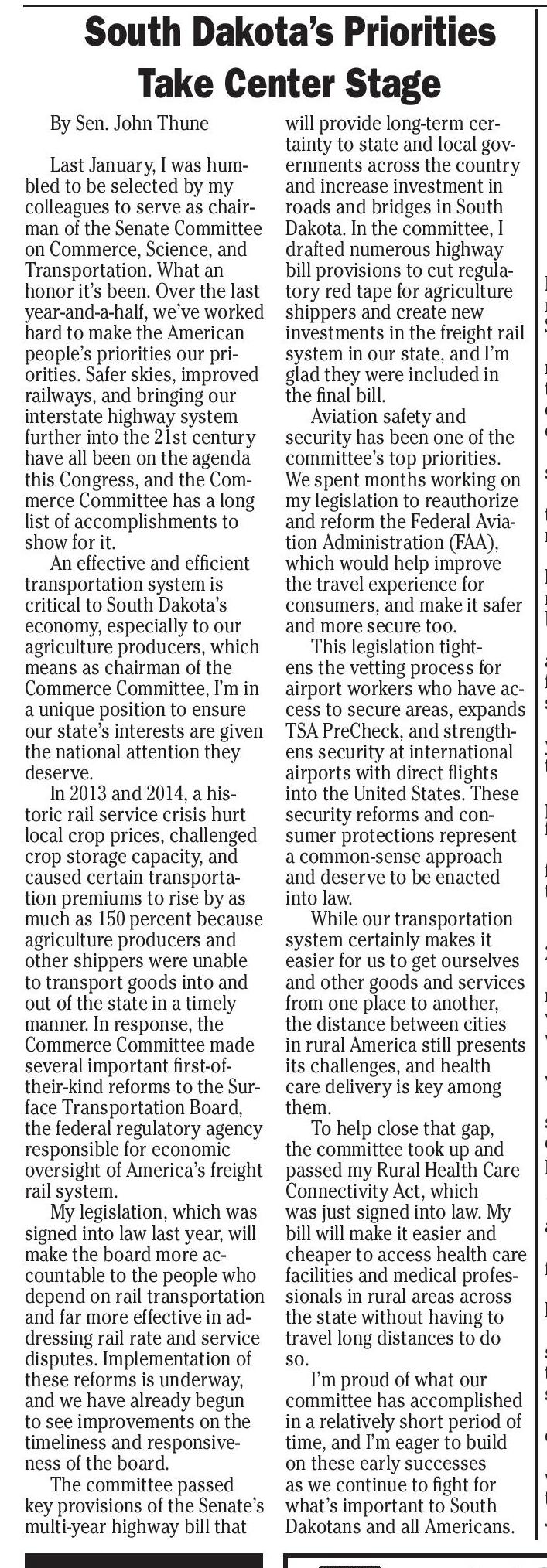
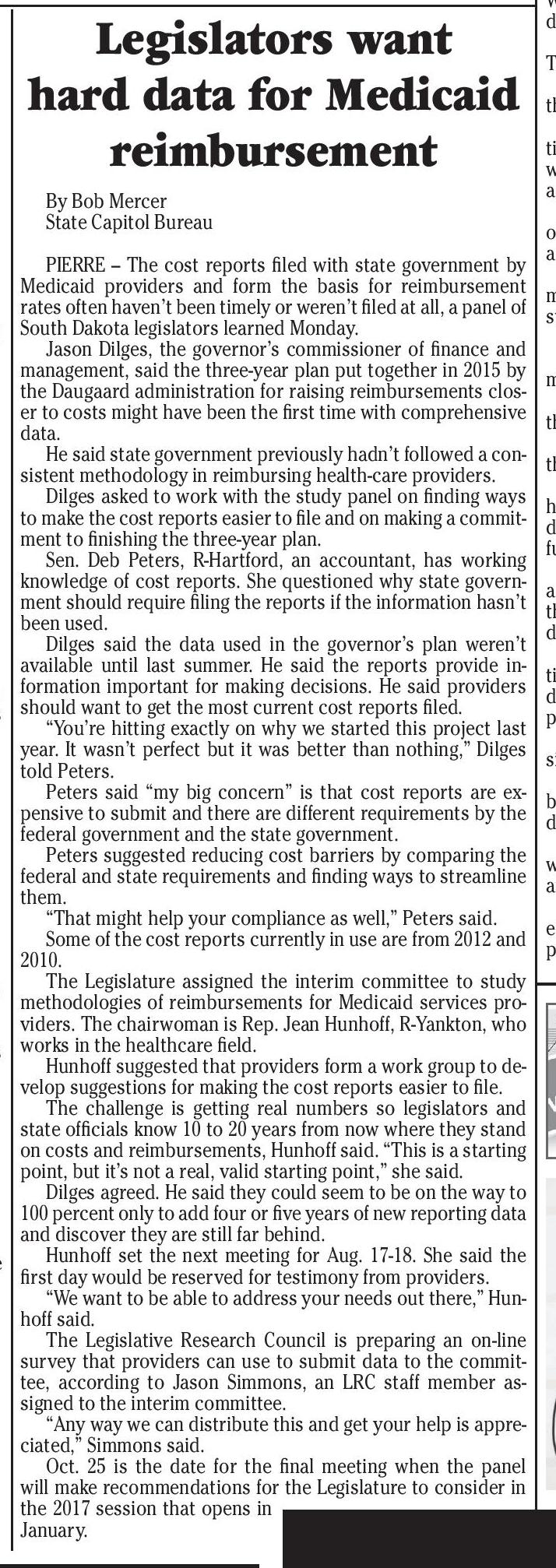

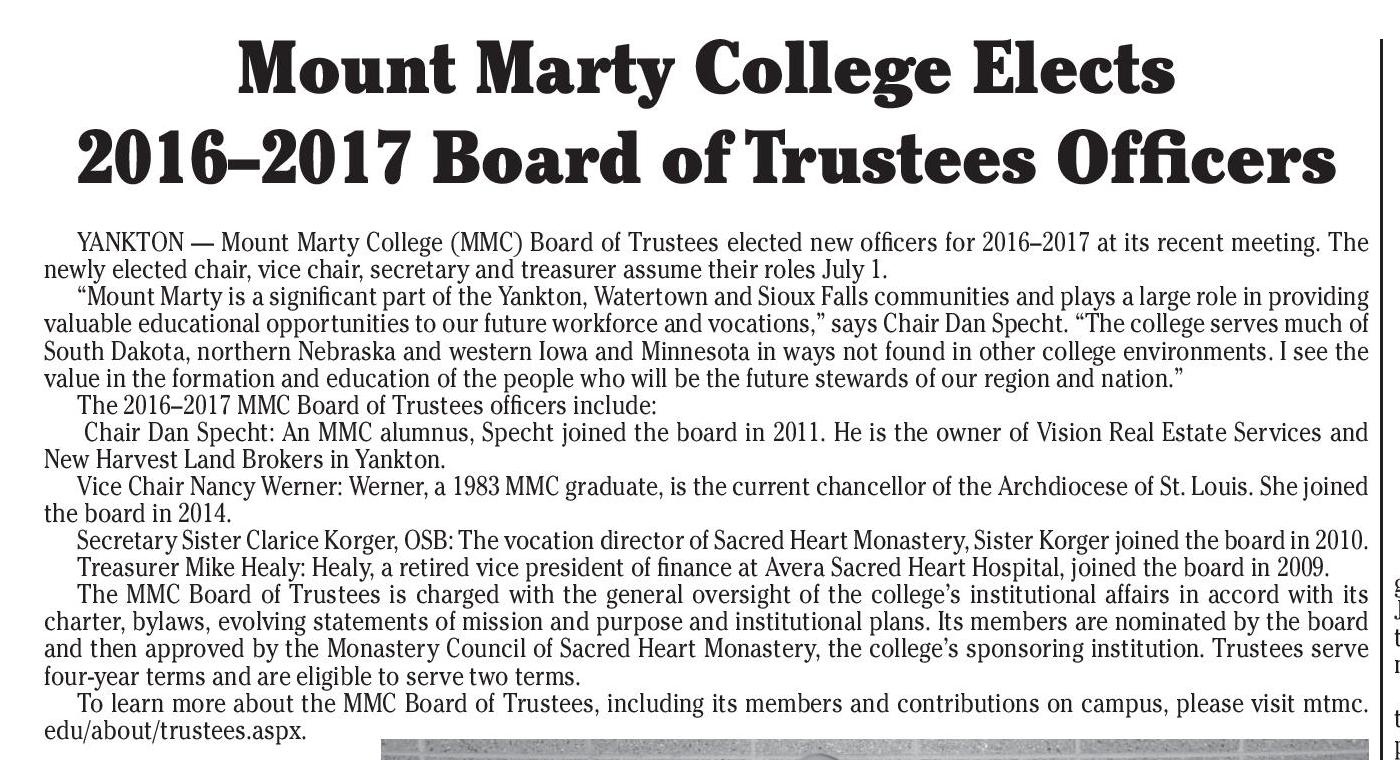

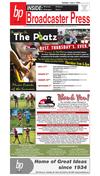


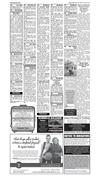
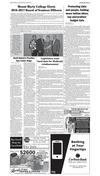


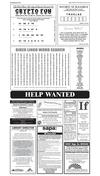


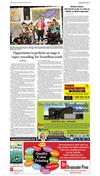

 Previous Page
Previous Page






